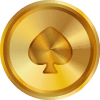30.
2024년 1월
ECJ가 불법 온라인 도박으로부터의 회복을 위한 청구를 처리합니다
독일 민사 법원은 이미 불법 온라인 도박 제공업체에게 도박 손실을 소비자에게 수백 번 배상하라고 명령했습니다. 현재 유럽사법재판소(ECJ) 판사들도 이 문제를 다루고 있다. 그곳에서 소비자 친화적인 판결이 발표된다면 독일 도박꾼들의 권리가 엄청나게 강화될 것입니다. 그러나 언제 결정이 발표될지는 아직 불분명하다.
ECJ, 로또랜드 운영사 상대로 소송 진행
구체적으로, 유럽사법재판소는 독일 도박꾼이 몰타에 본사를 둔 European Lotto and Betting Ltd와 Deutsche Lotto- und Sportwetten Ltd를 상대로 제기한 소송을 다루고 있습니다. 후자 회사는 무엇보다도 독일에서 인기 있는 Lottoland 웹사이트를 운영하고 있습니다.
로또랜드는 공식 복권 접수처가 아닌 소위 말하는 2차 복권입니다. 이는 복권 추첨 결과에 대한 베팅이 여기에 배치될 수 있음을 의미합니다. 또한, 로또랜드는 소위 슬롯이라고 불리는 가상 머신 게임도 제공합니다. 회사는 몰타 게임 라이선스를 보유하고 있지만 아직 독일에서는 라이선스를 취득하지 않았습니다.
일반적으로 이 나라에서는 2021년까지 대부분의 온라인 확률 게임이 전면 금지되었습니다. 스포츠 베팅만 회색 지대에 속했으며, 최초의 온라인 스포츠 베팅 제공업체는 2020년 10월에만 전국 라이센스를 받았습니다. 또한 2012년에는 , Schleswig-Holstein은 온라인 도박을 허용하는 유일한 연방 주였습니다. 그러나 그곳에서 허가를 받은 회사는 미국 최북단 주의 거주자만 대상으로 삼을 수 있었습니다.
ECJ 판사가 이에 대해 결정해야 합니다.
원고는 이제 도박 제안이 허용되지 않기 때문에 도박꾼과 피고 사이의 계약이 결코 유효하지 않다고 주장합니다. 따라서 원고는 온라인 슬롯 게임 및 2차 복권에 참여하면서 겪은 모든 도박 손실에 대한 상환을 요구합니다.
그러나 피고는 몰타 게임 라이센스를 통해 서비스를 제공하는 EU의 자유로 인해 독일에서는 이것이 합법적이었고 계속해서 합법적이라고 주장합니다. EU의 서비스 제공 자유는 EU 국가의 회사가 경제 연합 전체에서 서비스를 제공할 수 있도록 규제합니다. 이제 ECJ 판사는 어떤 주장을 따라야 할지 결정해야 합니다. 이를 위해 몰타 법원은 이들에게 총 7개의 질문을 제출했다.
판결은 언제 발표되나요?
프로세스 관찰자들은 소비자 친화적인 결정을 가정하고 있습니다. 이는 유럽 사법 재판소의 판사들이 이미 과거에 소비자 보호 성격으로 인해 EU의 서비스 제공 자유보다 국내 도박법에 더 큰 비중을 둘 수 있음을 분명히 밝혔기 때문입니다. .
이러한 점에서, ECJ 판사가 도박꾼이 도박 손실을 배상받을 자격이 있고 피고 회사가 몰타 라이센스에도 불구하고 독일에서 불법이었다고 결정하는 것은 전적으로 상상할 수 있습니다. 이 결정은 유럽 전역의 수십만 명의 도박꾼에게 도움이 될 수 있습니다.
30.
Jan 2024
ECJ DEALS WITH CLAIMS FOR RECOVERY FROM ILLEGAL ONLINE GAMBLING
German civil courts have already ordered illegal online gambling providers to pay back gambling losses to consumers hundreds of times. The judges at the European Court of Justice (ECJ) are currently also dealing with the issue. If a consumer-friendly ruling is announced there, it would enormously strengthen the rights of German gamblers. However, it is still unclear when a decision will be announced.
ECJ deals with lawsuit against Lottoland operating company
Specifically, the European Court of Justice is dealing with a lawsuit brought by a German gambler against European Lotto and Betting Ltd and Deutsche Lotto- und Sportwetten Ltd, based in Malta. The latter company operates, among other things, the Lottoland website, which is popular in Germany.
Lottoland is not an official lottery acceptance point, but rather a so-called secondary lottery. This means that bets on the outcome of lottery draws can be placed there. In addition, Lottoland also offers virtual machine games, so-called slots. Although the company has a Maltese gaming license, it has not yet been licensed in Germany.
In general, there was a total ban on most online games of chance in this country until 2021. Only sports betting was part of a gray area, with the first online sports betting providers only receiving nationwide licenses in October 2020. In addition, in 2012, Schleswig-Holstein was the only federal state to allow online gambling. However, companies licensed there were only allowed to target residents of the nation's northernmost state.
The ECJ judges have to decide on this
The plaintiff now argues that the contracts between the gambler and the defendant were never valid due to the inadmissibility of the gambling offer. The plaintiff is therefore demanding reimbursement for all of the gambling losses he suffered while participating in online slot games and secondary lotteries.
The defendant, however, argues that it was and continues to be legal in Germany due to the EU freedom to provide services through its Maltese gaming license. The EU freedom to provide services regulates that companies from an EU country are allowed to offer their services throughout the economic union. Now the ECJ judges have to decide which argument to follow. To this end, a Maltese court submitted a total of seven questions to them.
When will a verdict be announced?
Process observers are assuming a consumer-friendly decision, as the judges at the European Court of Justice have already made it clear in the past that national gambling laws can be given greater weight than the EU freedom to provide services due to their consumer-protecting nature.
In this respect, it is entirely conceivable that the ECJ judges will decide that the gambler is entitled to reimbursement of his gambling losses and that the defendant company was and is illegal in Germany despite its Maltese license. This decision could benefit hundreds of thousands of gamblers from all over Europe.
30.
Jan 2024
EUGH BEFASST SICH MIT RÜCKFORDERUNGSANSPRÜCHEN AUS ILLEGALEM ONLINE-GLÜCKSSPIEL
Deutsche Zivilgerichte haben illegale Online-Glücksspielanbieter bereits hundertfach zur Rückzahlung von Spielverlusten an Verbraucher verurteilt. Momentan befassen sich auch die Richter am Europäischen Gerichtshof (EuGH) bereits mit der Thematik. Sofern dort ein verbraucherfreundliches Urteil verkündet wird, würde dies die Rechte von deutschen Glücksspielern enorm stärken. Wann eine Entscheidung verkündet wird, ist bislang allerdings unklar.
EuGH befasst sich mit Klage gegen Lottoland-Betreibergesellschaft
Konkret befasst sich der Europäische Gerichtshof mit einer Klage eines deutschen Glücksspielers gegen die European Lotto and Betting Ltd und die Deutsche Lotto- und Sportwetten Ltd mit Sitz in Malta. Die letztgenannte Firma betreibt unter anderem die in Deutschland beliebte Website von Lottoland.
Lottoland ist keine offizielle Lottoannahmestelle, sondern eine sogenannte Zweitlotterie. Das bedeutet, dass dort Wetten auf den Ausgang von Lotterieziehungen abgeschlossen werden können. Darüber hinaus bietet Lottoland auch virtuelle Automatenspiele, sogenannte Slots, an. Das Unternehmen besitzt zwar eine maltesische Glücksspiel-Konzession, ist jedoch in Deutschland bislang nicht lizensiert worden.
Generell gab es hierzulande bis 2021 ein Totalverbot für die meisten Glücksspiele im Internet. Lediglich Sportwetten waren Teil eines Graubereichs, wobei die ersten Online-Sportwettenanbieter auch erst im Oktober 2020 bundesweit gültige Lizenzen erhielten. Darüber hinaus erlaubte Schleswig-Holstein 2012 als einziges Bundesland Online-Glücksspiel. Dort lizensierte Unternehmen durften sich allerdings auch nur an Bewohner des nördlichsten Bundeslands der Nation richten.
Darüber müssen die EuGH-Richter entscheiden
Die Klägerseite argumentiert nun, dass die Verträge zwischen dem Glücksspieler und der Beklagten aufgrund der Unzulässigkeit des Glücksspielangebots nie gültig waren. Daher fordert der Kläger die Erstattung seiner vollständigen Spielverluste, die er im Rahmen der Teilnahme an Online-Automatenspielen und Zweitlotterien erlitten hat.
Die beklagte Partei argumentiert hingegen, dass sie aufgrund der EU-Dienstleistungsfreiheit durch ihre maltesische Glücksspiellizenz auch in Deutschland legal gewesen sei und weiterhin ist. Die EU-Dienstleistungsfreiheit regelt nämlich, dass Unternehmen aus einem EU-Land ihre Dienstleistungen in der gesamten Wirtschaftsunion anbieten dürfen. Nun müssen die EuGH-Richter entscheiden, welcher Argumentation sie folgen. Dafür wurden ihnen insgesamt sieben Vorlagefragen durch ein maltesisches Gericht vorgelegt.
Wann wird ein Urteil verkündet?
Prozessbeobachter gehen von einer verbraucherfreundlichen Entscheidung aus, da die Richter am Europäischen Gerichtshof bereits in der Vergangenheit deutlich gemacht haben, dass nationale Glücksspielgesetze aufgrund ihres verbraucherschützenden Charakters höher gewichtet werden können als die EU-Dienstleistungsfreiheit.
Insofern ist durchaus denkbar, dass die EuGH-Richter entscheiden, dass der Glücksspieler Anspruch auf die Rückerstattung seiner Spielverluste hat und das beklagte Unternehmen trotz seiner maltesischen Lizenz in Deutschland illegal war und ist. Von dieser Entscheidung könnten Hunderttausende Glücksspieler aus ganz Europa profitieren.
자동 번역:














